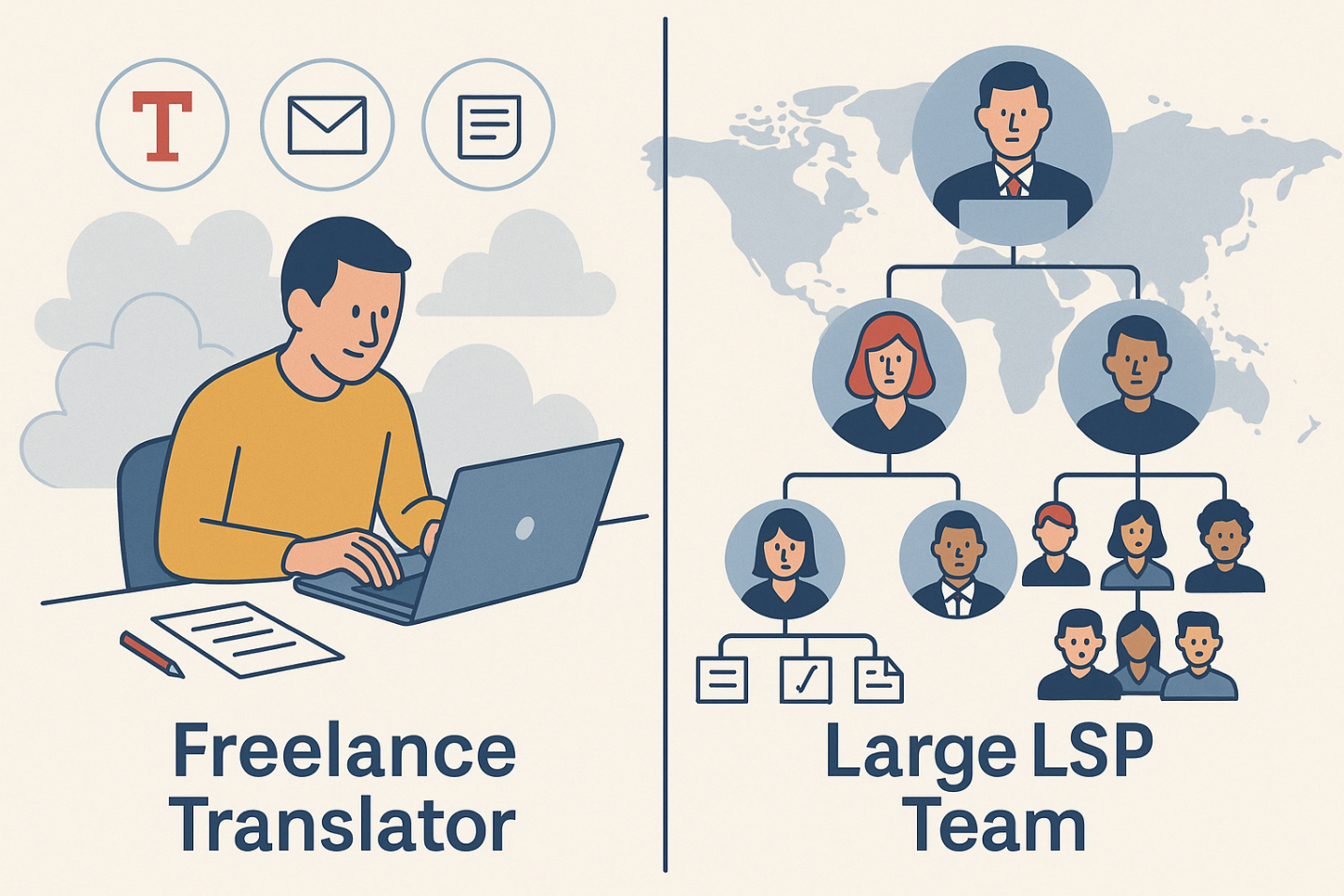
We often hear the above statement from the directors of very small translation companies, which employ up to five managers. Some offices are so small that there is only one project manager in them, and that is the owner. Such companies usually keep track of projects in Excel files or other spreadsheet editors that are generally not suitable for this purpose.
Using Excel to keep a record of projects is the same as, for example, transporting goods by combine harvester: technically feasible, but inconvenient. The combine harvester is a wonderful piece of equipment, but it is designed to address other problems.
We have already discussed the advantages of translation business management systems over Excel and Google Spreadsheets in a separate article. Here we will look at the common argument: “we are still too small to install a management system.”
The illusion of sufficiency
A person does not suffer from a lack of something he or she has no awareness of. In the Middle Ages, no one suffered from a lack of electricity, because no one was aware of its existence.
But time passed; electricity was invented and was incorporated into industry. Manufacturers who switched to electrically powered equipment dramatically increased the productivity of their companies compared to those who continued to rotate machine shafts using horses and water mills. And those who continued to work the old-fashioned way and declined the opportunity to incorporate advanced technologies became inefficient and began to lag behind competitors.
The situation in the translations industry is essentially the same. The directors of many start-up agencies are unaware of how much a translation project management system can simplify their work. They do not feel it necessary to look into such systems: because "everything is working just fine as it is." Business is doing well, there is no great competitive threat, and they have no incentive to change. Meanwhile, their competitors have introduced management systems and dramatically increased their efficiency.
Due to the lack of automation in small translation agencies, an average manager spends more time managing a project than a manager in a large office.
In young companies, there are typically not many projects on the go and plenty of time to get everything done. The inefficiency of the work processes are not recognized and therefore go unnoticed. No one measures how much time is wasted messing about in Excel, manually sending emails and creating financial documents. No one understands that time can be used more efficiently, and projects can be completed faster.
It is precisely because of this that translation agencies often fail to grow: everyone, including the director, spends considerable time on everyday tasks instead of on creative and strategic tasks.
And what if you suddenly begin to grow?
Some agencies manage to grow without using a translation project management system. But as they grow, they plunge into organizational chaos: the team is growing, and it becomes difficult to keep track of who is doing what and how efficiently they are working. The agency experiences great difficulties in managing its first major and urgent project.
In order to somehow take control of the situation, the director of the company is forced to introduce additional bureaucratic procedures: submit monthly reports, appoint supervisors, etc. All this entails additional time and financial costs and a big pile of stress.
Leaning against an invisible wall, the director begins to look for a way out. And he or she comes to a logical conclusion, which should have been foreseen much earlier: a system is needed that will liberate workers from their daily and routine tasks and automate their work.
But now it is more difficult to implement it: the company has grown, urgent jobs are now aplenty, and suddenly there is no time to test a business management system, not to mention to incorporate it into the agency's work processes. Everything is put off until tomorrow.
To implement the system, all the project managers need to be trained up. And the larger the company, the more difficult this is to do. It is one thing to train up a handful of colleagues, and quite another to streamline the work of a team of 15 people.
The larger the company, the more difficult it is to make major changes. People tend to resist change, especially if they don’t understand the reason for it. A large team is likely to resist any attempts to change how they work. And if its director does not take the decision to perform painful surgical intervention, the company is likely to stagnate.
But this problem is as old as business itself: a management system was not introduced from the very beginning, when the company was young and flexible.
Conclusion
Implementing a translation business management system is much easier in a young company than in a mature one. Firstly, incorporating such a system will allow you to save time before you suddenly don't have any: and you can spend this time on growing the company. Secondly, you will create a powerful managerial 'skeleton' at your agency before it grows its “muscles.” And in the future you will not encounter the situation in which there is no time to incorporate a system that will save you time.


.png)


